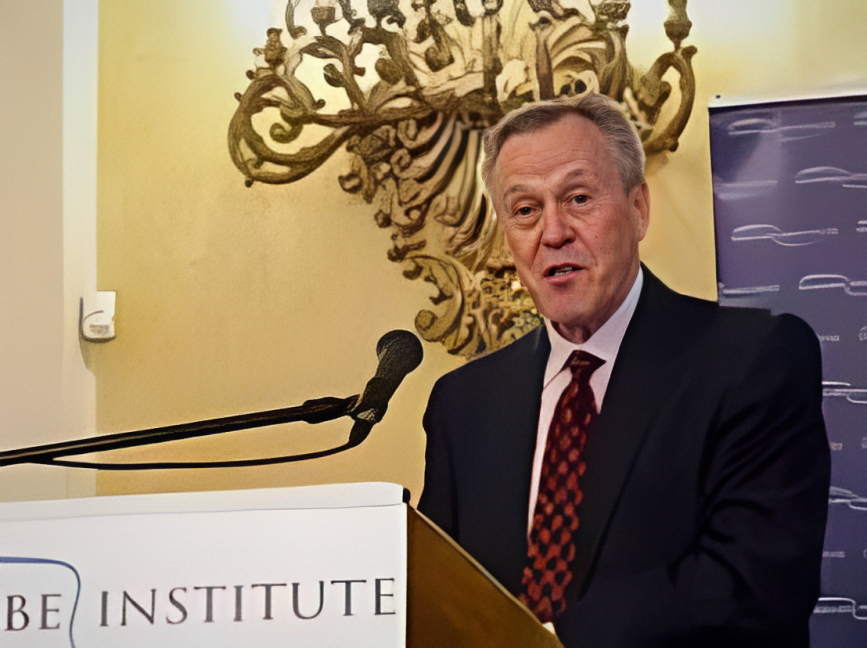From November 21 to 24, world renowned Ambassador Charles Crawford (pictured above) will leverage TEXEM’s proven and tested methodology while joining other TEXEM’s illustrious faculties, such as Harvard’s Founding Director of Maximise your Board programme to deliver TEXEM’s upcoming programme. Other TEXEM’s faculties delivering this programme include Professor Paul Griffith, the World’s first Professor in the area of Management to lead a team to launch a rocket into space and Gerald Baldwin, CEO of Cadbury World. In addition, during this programme, participants will include senior executives of different organisations attending TEXEM UK’s upcoming Strategic Leadership for success in volatile times programme taking place at Jury’s Inn, Birmingham (The city that recently successfully hosted the world to the Commonwealth Games), UK.
The University of Oxford alumnus Charles Crawford shares insights into how organisations can deploy
Strategic Leadership for Success in Volatile times especially via Influencing and Negotiating.
He also explains why executives should attend the forthcoming TEXEM programme.
What are the specifics with respect to what leaders and followers actually need from each other?
Big question! A typical answer is Trust. But maybe Trust depends on Honesty.
And honesty is hard. How far does a leader really want his or her team to be honest about the leader’s performance, or things that are going wrong or opportunities being missed? Do a team of followers want their leader to be honest in telling them that they’re lazy and not trying hard enough?
These are subtle things. But good organisations talk about them in a smart way. It boils down to any organisation’s culture. Is that culture based on Excellence? Or on Excuses? Attend TEXEM’s forthcoming programme to glean more insights.
In what ways could leaders apply smart questions when involved in the negotiation process?
One key part of any negotiation is working out what the other side really wants from it. And the other side might not be clear on that. So, you need to explore the issues, and that means asking smart questions in a smart manner. A lot of technique comes into play here.
Another aspect is learning how to sum up well, so that you keep the issues together in an organised way.
The Texem sessions we run draw on professional mediation skills that combine active listening (and active watching) with subtle questioning skills that help get people talking and so (all being well) reveal their deeper motivations. And, if all goes well, that leads towards negotiated outcomes that are not just a dull ‘win-win’ but something much richer than that.
In what ratio should silence and speech be applied by leaders to ensure better results and influence while involved in negotiation?
Speech is like music. Music is not mainly about the notes – it’s about the space between the notes. The phrasing and emphasis.
So, with speech. There’s what you say – and what you can convey without actually speaking. Gestures. Tone. A sense of confidence. Basically, less is more. Don’t be afraid of silence. Let it do some of the heavy work.
But you also have to train yourself to be good at listening to those silences. What aren’t they saying? What have they avoided saying? What have they avoided doing?
What are the best communication arsenals leaders should apply while addressing employees during periods of business uncertainties?
Best not to mention Arsenal to a Tottenham supporter!
When in doubt, be honest. If jobs have to be lost, make that clear in broad terms and explain how and when it is going to be done as fairly as possible. Give people a chance to jump before they’re pushed. And if it finally comes to letting people go, don’t come across as nervous or unhappy. It’s part of your job to make and then take tough decisions. Do it with conviction.
It’s also important to convey confidence that these hard times can be survived and perhaps end up making everyone stronger and wiser. But don’t overdo it and raise false hopes. As my journalist friend used to tell me, ‘The truth is usually the best story’. Upon attending TEXEM’s forthcoming programme on Strategic Leadership for Success in Volatile times, you will learn how to communicate strategically and influence effectively.
Kindly enumerate specific leadership strategies that heads of organisations could use to revive such organisations in periods of recession.
Hard to say: it’s bound to be very organisation-specific and sector-specific. One good profound question that always needs answering is: What business are we really in these days? Maybe the current storms can compel a much-needed tough-love reorganisation and re-focus that looks at opportunities and customer service in quite different (and much better) ways.
Likewise, have a searching look at what the organisation really does well and what it does not so well. Honesty again. Cut out the not-so-good things and put more effort into the really good things.
Most organisations these days have mountains of junk processes. Try to reduce those mountains! That’s hard when so much IT and digitalisation push a lot of processes into over-restrictive rules that take away individual responsibility and initiative. But there should be scope in all that for bringing back plenty of ‘human touch’ that makes customers feel pleased and grateful and so wanting to return for More. That is why TEXEM’s forthcoming programme on Strategic Leadership for success in volatile times is very topical and relevant.
What are the best tactics a leader could deploy in controlling a meeting or negotiation successfully without appearing too assertive?
Nothing wrong with being assertive. If it’s done well. There’s a thin line between confidence and over-confidence or assertive and obnoxious! Assertiveness isn’t just about coming across as rather noisy and self-confident. It can come from not saying much but making sure that everything you say has authority and helps move things along.
All in all, SLOW DOWN. Give yourself time to THINK about what you’re doing as you go along and to adjust if things are not on track. But you also have to know what track you want to be on. That means before a meeting or negotiation starts having a test of success and a test of failure. If you don’t know what success looks like, don’t start the meeting!
What benefits are there for chief executives attending TEXEM UK’s programme on Strategic Leadership for Optimised Organisational Performance in an Era of Uncertainty?
You’ll learn a lot of highly practical specific ideas and skills that will help you be a far more subtle and thoughtful (and therefore effective) leader immediately. The programme will also leverage TEXEM’s tested and proven methodology that has helped over 4000 executives and their organisations to win and makes learning fun, impactful, engaging, stimulating and fun. Not many courses achieve that.
I look forward to welcoming many senior executives to this programme.







